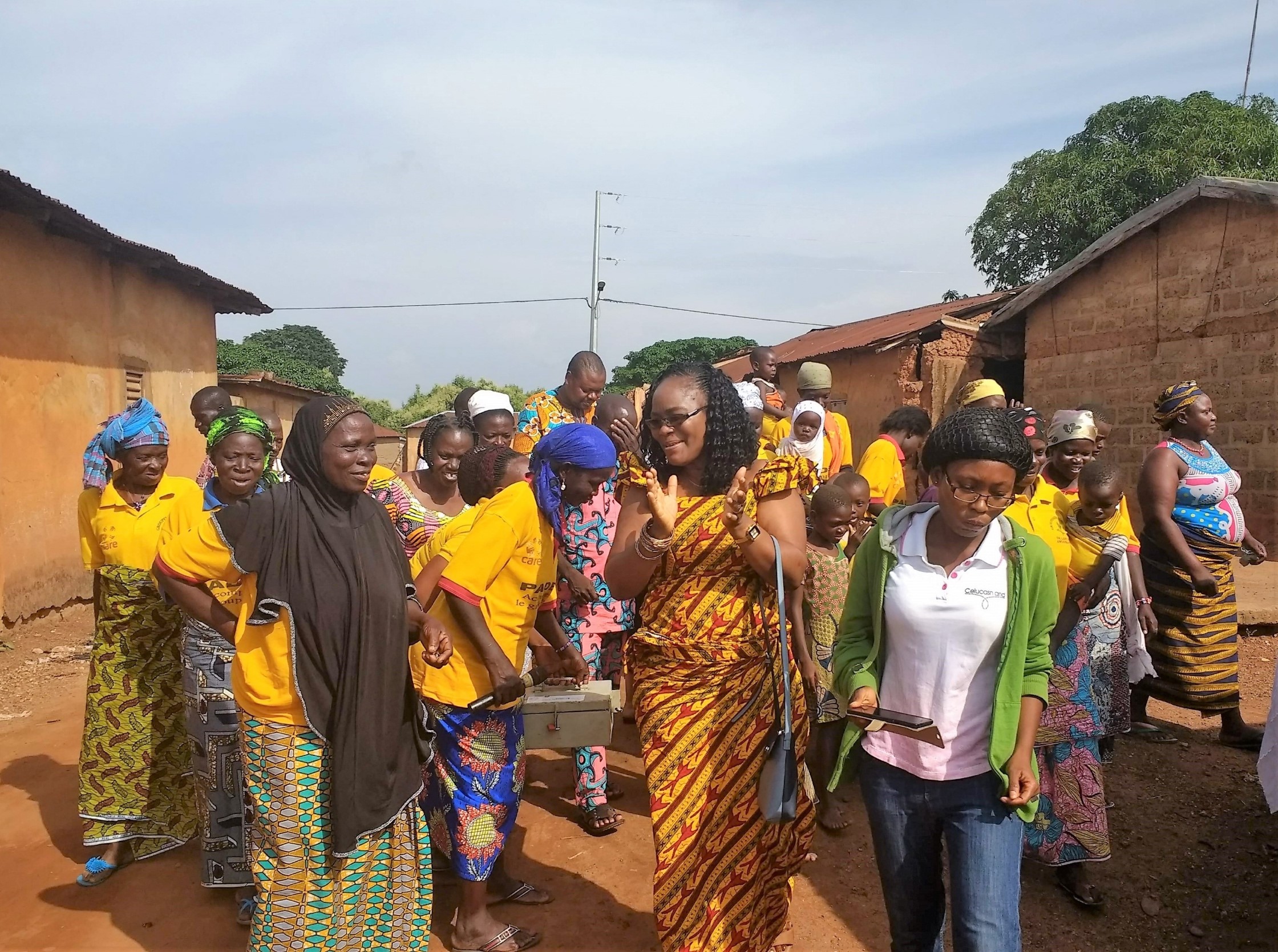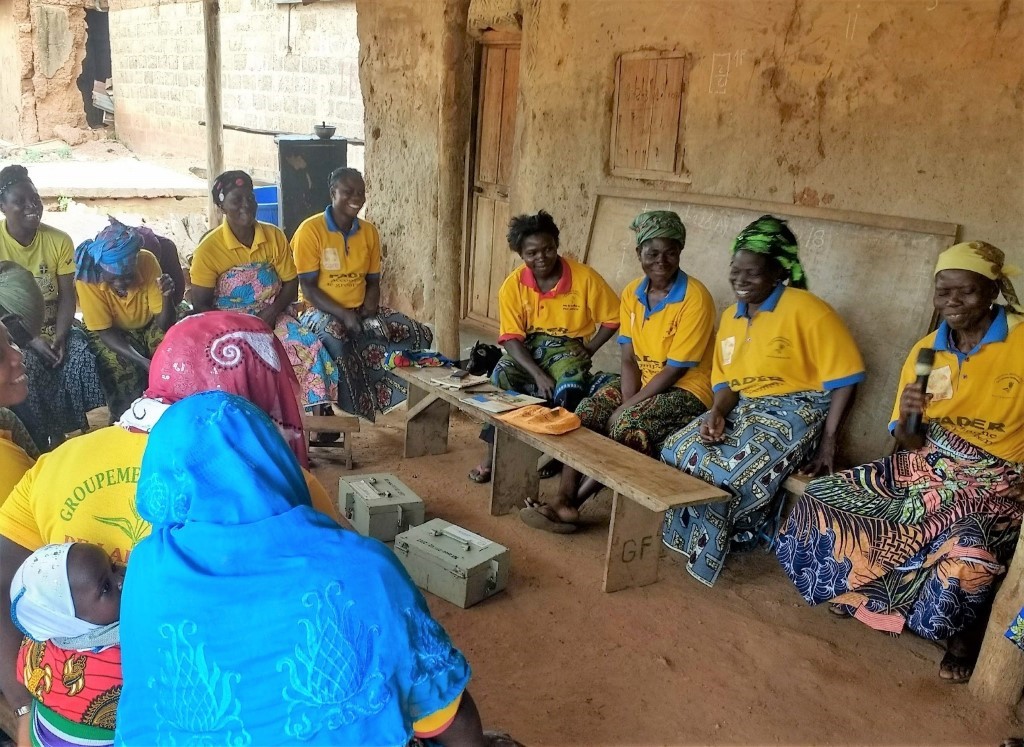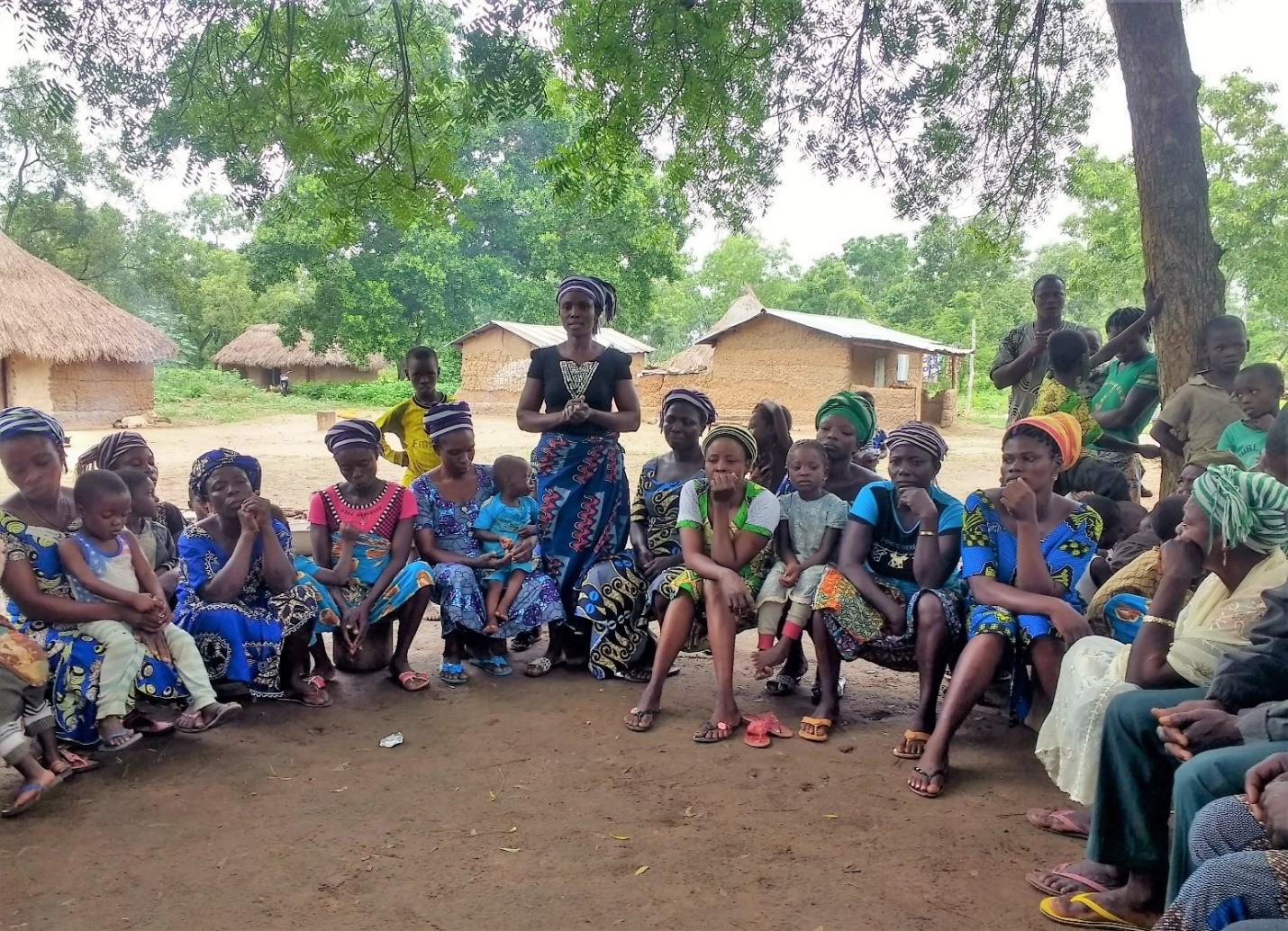“We are liberated”: Women-led agricultural Savings and Loans Groups boost empowerment in Benin
Since 2016, the project “Initiative for Empowering Women Farmers in Benin – “Miguézé!” has helped rural women in Benin access land, build agricultural and technical skills, and gain self-confidence as entrepreneurs. The project, led by Association Nationale des Femmes Agricultrices du Bénin (ANaF) and funded by UN Women Fund for Gender Equality (FGE), helps establish women’s Savings and Loans Groups and encourages income-generating activities to boost food productivity and security.Date:

Benin is among Africa's most stable democracies and largest cotton producers. Nevertheless, corruption is rife and despite economic growth over the past few years, Benin ranks among the world's poorest countries.
Although several recent laws have been adopted to improve women’s rights, implementation comes up against serious social, cultural and economic obstacles. Discriminatory practices negatively impact women’s safety and security, not to mention women’s political and economic participation. The lack of economic opportunity has exacerbated these impediments to gender equality in Benin.
Rural women are disproportionately affected by these obstacles, including high illiteracy rates and traditional norms that exclude women from land ownership, inheritance and resource management. They are also vulnerable to climate change and the subsequent degradation of natural resources, and many struggle to meet basic needs for themselves and their households. By helping rural women access the means to become productive members of their communities, ANaF Benin, with the support of the Fund for Gender Equality, is transforming women’s livelihoods in some of the most remote areas of the country.
Since early 2016, ANaF has implemented the FGE-funded project “Initiative for Empowering Women Farmers in Benin - "Miguézé!”. It has since helped women access land, build agricultural and technical skills, and gain self-confidence as rural women entrepreneurs in two municipalities, Savalou and Bantè.

Savings and Loans Groups in Savalou explain the consequences of SLGs for their business, marriage, children and community. Photo: UN Women/Catherine Wolf
The Miguezé project operates using a micro-finance service – Savings and Loans Groups (SLGs) – that brings 10 to 35 women together to form a group. They elect a President, a Secretary and a Treasurer, and every week put their savings into a common pool of funds. After a few weeks or months, any of the members can ask for a loan and must repay it within the next three months, paying an interest rate of 5 - 10 per cent. The loan is used to invest in their businesses — for example, for buying seeds, cattle and tools to increase productivity. The interest is divided between the members of the group, so everyone benefits. The loans do not require asset guarantee, which is particularly helpful for small-scale women farmers who often do not own land or assets. Some groups also open a solidarity fund composed of the savings of each member of the group, which can be used in the event of emergencies. These funds are mostly used for school fees and medical bills, and allow the women to take financial decisions in these areas without requiring the approval of their husbands.
As one Savings and Loans Groups participant expressed, “The project has taught us various accounting techniques that help us avoid unnecessary expenses. Our income has increased and now we can contribute to household expenses. Women are also expressing themselves in public, which they did not do before. Before the project, male villagers thought that if a group of women met, it only served the purpose of ‘gossiping’ – now this opinion has changed. It is really like the project name proclaims – Miguézé – we are liberated!”.
The Miguézé programme in Benin concluded in 2018. So far, it has impacted the lives of over 5222 people, mostly rural women, many of whom are now recognized as leaders within their communities.
| Increase in: | Decrease in: |
| income | conflict in the family |
| free time | early school-leaving |
| confidence to speak openly in meetings (noted also and especially by men) | dependence on climate, seasons, unexpected events |
Despite all the promising results rooted in ANaF’s sustainable and long-term vision, a lot still needs to be done. Even though many women’s responsibilities and incomes have increased, some aspects of gender equality still seem unthinkable for both men and women. One example is fetching water – a household chore traditionally undertaken by women. Access to water and the quality of roads remain the most important issues that hinder the full materialization of the the project’s results.

ANaF remains committed to the rural women of Savalou and Bantè. As Louisa Aylara, the President of ANaF stated, "What is needed is a women's organization that gives these women confidence and allows them to communicate freely. We intend to continue supporting the women of Savalou and Bantè, while opening new pathways for women in other communities. We will offer trainings in accounting, literacy and leadership skills. ANaF would also like to continue supporting local and national governments in passing laws to improve women’s access to mobile banking services as well as drinking water and land."